Sri Lankan President Mahinda Rajapakse recently met with Chinese President Hu Jintao on the sidelines of an economic summit in St. Petersburg, Russia, where the two leaders pledged closer cooperation. In an email interview, Swaran Singh, a professor and chairman of the Center for International Politics, Organization and Disarmament at Jawaharlal Nehru University in New Delhi, discussed China-Sri Lanka relations. WPR: What is the recent history of China-Sri Lanka relations, and what is driving the relationship? Swaran Singh: China has been a major source of economic, military and technical assistance for Sri Lanka, which in turn supports China on its […]
China Archive
Free Newsletter
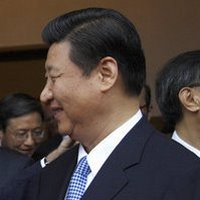
BEIJING — China’s expanding economic engagement with Latin America has been largely based on securing access to the continent’s abundant natural resources. But despite the opportunities presented by the wave of Chinese capital, concerns have arisen over the asymmetric and one-dimensional nature of China’s relations in the region, which generally conform to the classic center-periphery model. Chinese Vice President Xi Jinping’s recent three-country tour of the continent was aimed at addressing these concerns, outlining a blueprint for how China’s incoming leadership intends to deepen its international relations and consolidate recent economic foreign policy gains. In 2010, more than 90 percent […]
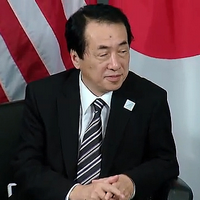
The triple catastrophe represented by Japan’s March 11 earthquake, tsunami and nuclear emergency has thus far had two main effects on Japan’s national security policies. First, the crisis has focused the attention of Japanese security managers inward toward domestic humanitarian assistance and disaster relief operations. Second, it has reinforced the Japanese-U.S. alliance, which had already been strengthened by the Japanese government’s decision to abandon its earlier quest for a more independent security policy in light of increased external threats from the East Asian mainland. Given this increased salience of external threats, Japan’s earthquake-induced domestic preoccupation may prove to be of […]
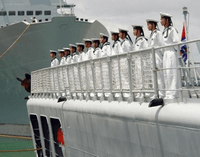
Against the backdrop of an escalating crisis with Vietnam over territorial claims in the waters off the Spratly Islands in the South China Sea, China declared that it would boost its “offshore surveillance capability.” This, a Chinese state media report claimed, was aimed at forestalling any aggressive moves by China’s neighbors in its claimed maritime territories. Though the report did not name any particular nation, the message was seen as being squarely directed at Vietnam, which Beijing has described as being “overtly hostile” in its recent actions and pronouncements. China’s decision to enhance its ocean surveillance capability is not surprising. […]
Russian President Dmitry Medvedev’s announcement Monday that he desires a second term as president but won’t run against Prime Minister Vladimir Putin should Putin declare his candidacy has inspired heightened speculation over Russia’s unusual power-sharing duo ahead of elections next March. When attempting to understand the Putin-Medvedev dynamic, Ben Judah, a London-based policy fellow and Russia specialist with the European Council on Foreign Relations, says one must take care not to view the two as being in competition with each other. “It shouldn’t be confused as a battle between two rivals,” Judah reminded Trend Lines earlier this week. “The tandem […]
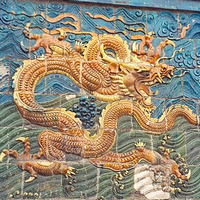
BEIJING — Some China-watchers have argued recently that the rule of law is weakening in the People’s Republic. However, a less-commented-on countertrend is the re-emergence of legal processes inspired by indigenous conventions and traditions such as trial by public opinion. The trend seems to be deepening, reflecting a profound ideological shift in China’s legal approach. Moreover, this shift may help explain China’s more assertive foreign policy over the past 18 months and also has significant implications for the country’s leadership aspirations in Asia and its continued integration in international institutions. Indigenous Chinese legal process adheres to what has been called […]
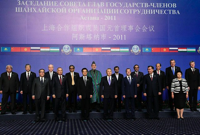
The Shanghai Cooperation Organization (SCO) celebrated its 10th anniversary last week, with the leaders of its six member states gathering in Astana, Kazakhstan, for the occasion. In addition to assessing the achievements of the organization’s first decade, SCO leaders also considered the applications of Pakistan, India, Mongolia and Iran for full membership. There are now increasing indications that India and Pakistan might be admitted, although not before next year. Nevertheless, admission of these two nations could alter the mission and global relevance of the SCO as a regional multilateral organization. The SCO was initially created as a security pact to […]
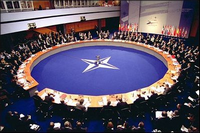
A constant refrain of the Democratic party’s foreign policy establishment during the administration of former President George W. Bush was that, in contrast to “unilateralist” Republicans with their cosmetic “coalitions of the willing,” Democrats were more skilled at constructing durable international partnerships that would lead to true burden-sharing. The assertion, which became almost an article of faith, served as the basis for John Kerry’s 2004 campaign promise that, if elected, he would be able to secure broader multilateral troop contributions in Iraq to relieve the burden on U.S. troops there. In the 2008 election, the same faith, combined with a […]
Vietnam’s live-fire naval exercises this week may signal a new stage of regional tension over disputed areas of the potentially oil- and gas-rich South China Sea. At a minimum, says Abraham Denmark, a senior adviser at the Center for Naval Analysis in Washington and a World Politics Review contributor, the exercises were designed to send a message to China, which in recent months has become more assertive in its claims of sovereignty over the sea. “It’s fairly clear that Vietnam is signaling its resolve to China that they’re not going to back down on disputed claims in the South China […]
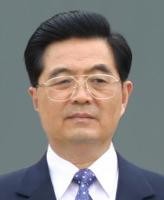
The meeting last week between China’s ambassador to Qatar and the head of Libya’s opposition movement signaled a proactive new phase in China’s engagement with Libya’s future. The move is a further step away from China’s traditional insistence on not interfering in the internal affairs of other nations and privileging intergovernmental relations. Yet there are reminders of a not-too-distant past when Maoist China had extensive contacts with rebels around the globe. Now, China is testing out new responses and possibilities for conflict mediation while also looking to secure its own interests, whatever the outcome in Libya. China showed considerable flexibility […]

The Western press is rife with stories about China’s growing conservatism, reflected by an ongoing crackdown on free speech by Chinese authorities as well as a Maoist revival in the interior provinces. In our alarm, we imagine the worst of all possible outcomes: an all-powerful Chinese economy lorded over by a political system that somehow reverts to its communist-era politics of open antagonism with the West. While there are powerful structural dynamics that work against this combination, we should nonetheless not fear it. To the extent that China’s economic trajectory is threatening to stall out, as it inevitably must at […]

Chinese foreign investment is often considered nonideological: Dictatorship or democracy, model state or pariah — if a country has natural resources, China is an eager investor. In Latin America the characterization rings true, as China has curried favor with left-leaning governments — in Venezuela and Ecuador — and right-leaning governments — in Chile and Colombia — alike. China’s relations with Cuba are a case in point, if a counterintuitive one. On a three-day visit to the island this week, Chinese Vice President Xi Jinping and Cuban President Raúl Castro signed 10 accords and began talks on a five-year plan for […]

The Naval War College just completed its annual Current Strategy Forum, with this year’s topic being “Energy and U.S. National Security: Vulnerability and Opportunity.” Listening to the presentations, one could not help but be struck by the “chicken and egg” relationship between access to energy and U.S. grand strategy. Which should drive the other — and what are the various options? Rising energy costs, combined with economic austerity, means that “business as usual” is no longer an option for the U.S. military. A recent study by Deloitte noted (.pdf), “Warfare and combat operations are not the only variables driving [Defense […]
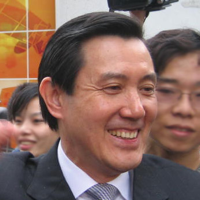
Taiwanese exporters are anticipating the arrival of July 1 with some anxiety. On that day, the free trade agreement (FTA) between the European Union and South Korea, Taiwan’s archrival in trade, will come into effect. As 70-75 percent of Taiwan’s exports to the EU overlap with those from South Korea, and as Brussels is set to lift import tariffs on 93.9 percent of Korean products within the deal’s first year, it is all but certain that Taiwanese products will suffer in the European market. But the export-dependent island’s plight does not end there. In terms of FTAs, South Korea, which […]
